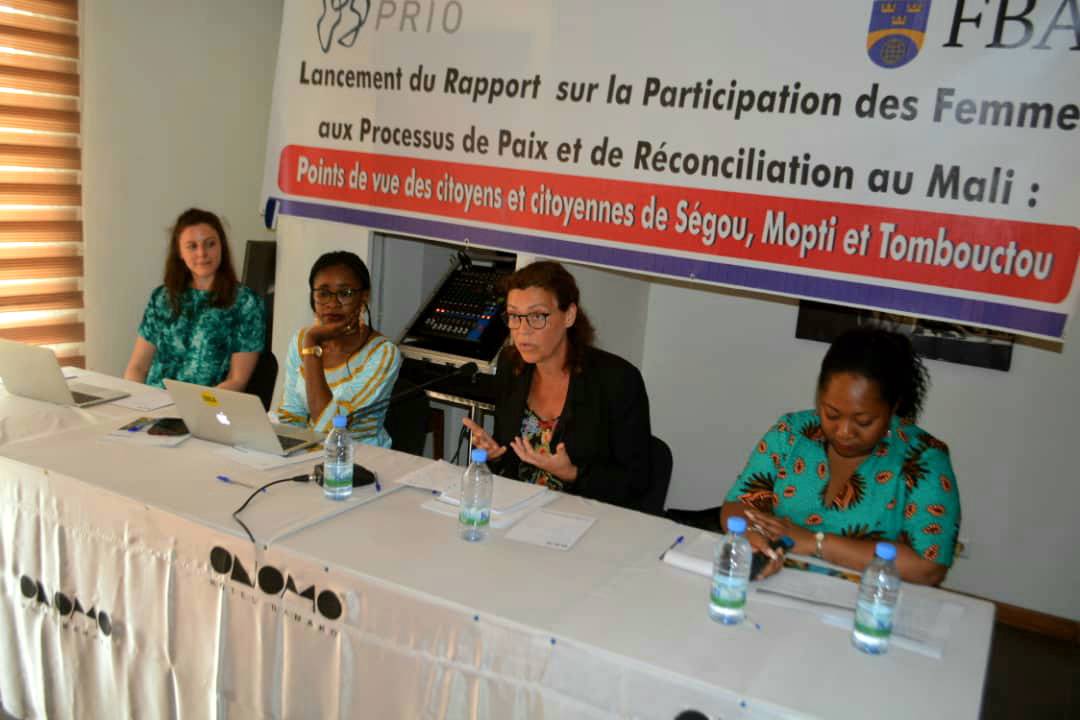
On 20 June, the PRIO Paper on Women's Participation in Peace and Reconciliation Processes in Mali was launched in Bamako, Mali. The launch was well-attended by representatives from a broad spectrum of organizations. Approximately 50 representatives from UN entities, embassies, NGOs, civil society organizations, women's organizations, and the Malian research community attended the launch.
Opening remarks were given by Attaher Ag Iknane, Secretary General of the Ministry for social cohesion, peace and reconciliation, and Richard Bomboma, Head of Cooperation at the Swedish Embassy in Bamako. This was followed by a presentation of the report, including its main findings and recommendations, by the authors Jenny Lorentzen, PRIO Doctoral Researcher, and Nana Alassane Toure, independent consultant. After the presentation of the report, the attendants were given the chance to share their reflections and ask questions about the report to the authors. Closing remarks were given by Ylwa Renström Svensson from the Folke Bernadotte Academy (FBA). Research assistant and co-author Bassirou Gaye was also present.
The report was commissioned by the Folke Bernadotte Academy (FBA) and was published by PRIO in collaboration with Malian partners in May. The report presents findings from a study about the participation of women in peace and reconciliation processes currently underway in Mali. The findings are based primarily on focus group discussions with men and women carried out in Segou and Mopti in central Mali, and Tombouctou in northern Mali, in December 2018.
The objective of these discussions was to identify concrete factors that contribute to and/or hamper the possibilities for women's meaningful participation in peace and reconciliation processes in Mali. An important finding is that women play crucial roles in local conflict resolution and management, but they are almost absent in the mechanisms for the implementation of the peace agreement. It is therefore crucial that structures are established to make sure that the concerns and expertise of women at the local level are represented and inform discussions at the national level. The findings further highlight the need to consider both the specifics of the peace and reconciliation processes taking place in Mali, as well as the more fundamental conditions related to gender inequality in the country.
Read the English version of the PRIO paper here.
Ce PRIO Paper est également disponible en français.





